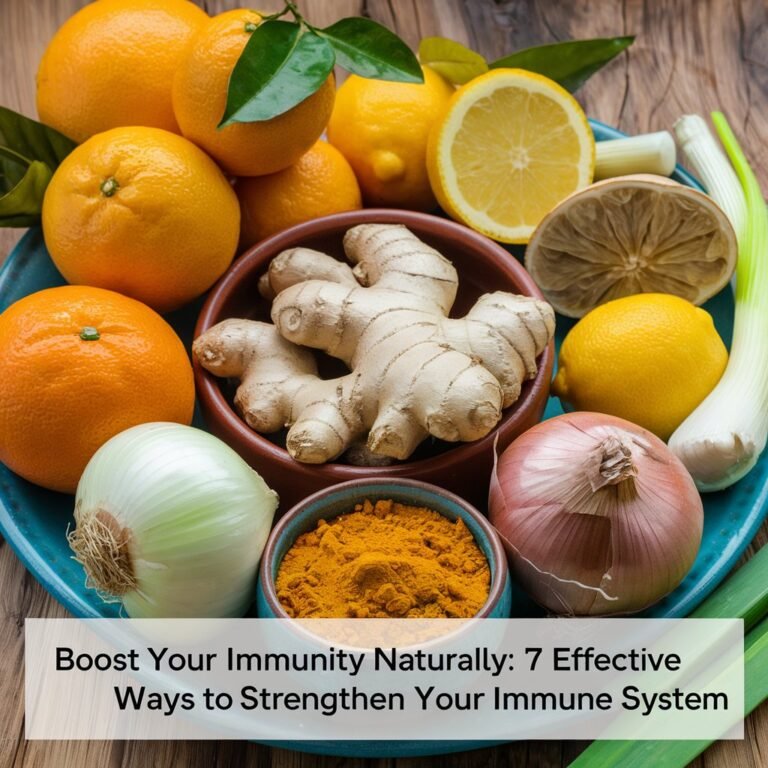
"Discover the 7 powerful ways a balanced diet can transform your health, from boosting energy to preventing chronic diseases. Learn how nutrition supports overall well-being."
Meta Description:
Discover the powerful connection between nutrition and health. Learn how a balanced diet can improve energy, enhance mood, and prevent chronic diseases.
The Power of Nutrition: 7 Ways a Balanced Diet Impacts Your Health

Good nutrition is one of the most important aspects of leading a healthy life. What you eat directly impacts your physical health, mental well-being, and overall quality of life. A balanced diet provides essential nutrients that the body needs to function properly, fight off diseases, and maintain energy throughout the day.
In this article, we’ll explore the many benefits of a balanced diet and why nutrition should be a top priority in your life.
1. Supports Your Immune System

A balanced diet plays a key role in boosting your immune system. Certain nutrients help strengthen the body’s defenses against infections and diseases:
- Vitamin C: Found in citrus fruits, peppers, and broccoli, Vitamin C helps produce white blood cells, which fight infections.
- Zinc: Foods like beans, nuts, and seeds are rich in zinc, which is essential for immune cell function.
- Vitamin D: Fortified dairy products, fish, and sunlight provide Vitamin D, which enhances the pathogen-fighting effects of immune cells.
A strong immune system helps you stay healthier and recover faster when you do get sick. For more on boosting immunity through nutrition, check out the National Institutes of Health.
2. Increases Energy Levels

Eating a variety of nutrient-dense foods gives your body the fuel it needs to perform well throughout the day. Here’s how nutrition impacts energy levels:
- Complex carbohydrates: Whole grains, fruits, and vegetables provide a slow release of energy, keeping you energized for longer.
- Protein: Lean meats, legumes, and tofu are excellent sources of protein, which helps build and repair tissues and supports energy production.
- Healthy fats: Avocados, nuts, and olive oil provide healthy fats that fuel the body without spiking blood sugar levels.
Proper nutrition ensures sustained energy levels, reducing feelings of fatigue or sluggishness during the day. Learn more about energy-boosting foods from Harvard T.H. Chan School of Public Health.
3. Improves Mental Health and Mood
Nutrition is closely linked to mental well-being. Eating a balanced diet can help improve your mood, boost mental clarity, and reduce symptoms of stress or anxiety:
- Omega-3 fatty acids: Found in fish like salmon, walnuts, and flaxseeds, Omega-3s play a crucial role in brain health, reducing inflammation and supporting cognitive function.
- B vitamins: Whole grains, leafy vegetables, and legumes are rich in B vitamins, which help improve mood and reduce feelings of anxiety and depression.
- Antioxidants: Berries, nuts, and dark chocolate are high in antioxidants, which protect the brain from oxidative stress and improve overall brain health.
For more insights into nutrition and mental health, check out Mental Health America.
4. Helps Maintain a Healthy Weight

A balanced diet is essential for managing your weight. It provides the nutrients you need without excess calories that can lead to weight gain. Here’s how a healthy diet supports weight management:
- Portion control: Eating balanced meals helps you regulate portion sizes, preventing overeating.
- Fiber-rich foods: Fruits, vegetables, and whole grains are high in fiber, which helps you feel full and satisfied while preventing overeating.
- Healthy fats: As mentioned earlier, healthy fats like those in nuts, seeds, and fish can keep you feeling full longer, preventing unhealthy snacking.
When combined with regular exercise, a balanced diet helps keep weight within a healthy range. To learn more about weight management and nutrition, visit the Centers for Disease Control and Prevention.
5. Promotes Healthy Skin, Hair, and Nails
The food you eat can have a significant impact on the health of your skin, hair, and nails. A balanced diet provides the essential vitamins and minerals that help keep these body parts in good condition:
- Vitamin A: Found in carrots, sweet potatoes, and spinach, Vitamin A supports skin health by reducing acne and promoting cell growth.
- Biotin: This B vitamin, found in eggs, nuts, and seeds, strengthens hair and nails, preventing breakage.
- Vitamin E: Found in almonds, spinach, and sunflower seeds, Vitamin E helps maintain skin elasticity and protects against UV damage.
A well-balanced diet gives your body the tools it needs to repair and maintain healthy skin, hair, and nails. Learn more about the role of nutrition in skin health from the American Academy of Dermatology.
6. Prevents Chronic Diseases
A nutritious diet is key in preventing and managing chronic conditions such as heart disease, diabetes, and high blood pressure. Here’s how:
- Heart disease: A diet rich in fruits, vegetables, lean proteins, and whole grains reduces the risk of heart disease by lowering cholesterol and improving blood pressure.
- Diabetes: A balanced diet helps regulate blood sugar levels, which is essential for preventing or managing Type 2 diabetes.
- High blood pressure: Nutrients like potassium, found in bananas, spinach, and potatoes, help balance sodium levels and reduce the risk of high blood pressure.
By eating a diet rich in whole, unprocessed foods, you reduce the risk of many serious health conditions. For more on how to prevent chronic diseases through diet, visit The American Heart Association.
7. Supports Digestive Health
A balanced diet is essential for maintaining a healthy digestive system. The right foods support the proper functioning of the digestive tract and prevent common issues like bloating, constipation, and indigestion:
- Fiber: High-fiber foods like whole grains, fruits, and vegetables support regular bowel movements and promote a healthy gut microbiome.
- Probiotics: Yogurt, kefir, and fermented foods are rich in probiotics, which support the growth of good bacteria in the gut and improve digestion.
- Water: Staying hydrated is crucial for digestion, as it helps break down food and prevent constipation.
A healthy gut plays a vital role in overall health, influencing everything from your immune system to mental well-being. Learn more about gut health from The Gut Health Doctor.
Conclusion: Eat Well for a Healthier Life
The power of nutrition cannot be underestimated. A balanced diet is the foundation of good health, affecting everything from energy levels and mental clarity to immune function and disease prevention. By incorporating a variety of nutrient-dense foods into your daily routine, you can support your body’s natural processes, maintain a healthy weight, and prevent chronic diseases.
Remember, good nutrition isn’t about restriction but about balance. Focus on whole, unprocessed foods and enjoy the long-term benefits for your health.
FAQs
Q1: How can I start eating a balanced diet?
A1: Begin by incorporating more fruits, vegetables, whole grains, and lean proteins into your meals. Aim to reduce processed foods and added sugars.
Q2: Can nutrition improve my mental health?
A2: Yes! A balanced diet rich in Omega-3 fatty acids, B vitamins, and antioxidants has been shown to improve mood and reduce symptoms of depression and anxiety.
Q3: How can I maintain my weight with a balanced diet?
A3: By eating nutrient-dense foods in the right portions and staying active, you can maintain a healthy weight without depriving yourself of essential nutrients.





